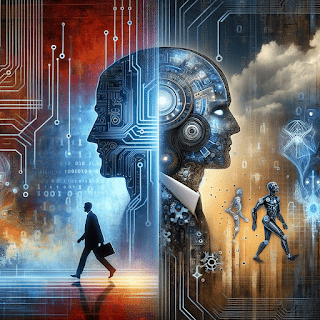On November 17, 2023, it was announced that Sam Altman was no longer the CEO of OpenAI, the organization behind the well-known chatbot ChatGPT. According to reports, Altman was forced out of OpenAI following a decision by the company’s board. The reasons cited for his departure involve issues related to his communication with the board. It was reported that he was “not consistently candid in his communications with the board,” leading to his dismissal.
In the wake of this significant leadership change, OpenAI has appointed its Chief Technology Officer, Mira Murati, as the interim CEO. The company has also initiated a search process to identify a permanent successor for the CEO position.
This development marks a notable shift in OpenAI’s leadership, as Altman had been a prominent figure in the company, which has gained widespread attention for its advancements in artificial intelligence and the creation of ChatGPT. The circumstances of his departure and the future direction of OpenAI under new leadership are likely to be closely watched by the tech industry and AI community.
The departure of Sam Altman as CEO of OpenAI marks a significant turning point for the company, which has been at the forefront of groundbreaking developments in artificial intelligence. The appointment of Mira Murati as interim CEO suggests a commitment to maintaining stability and continuity in leadership during this transitional phase. However, the impact of this leadership change on OpenAI’s future direction and projects remains to be seen.
From a strategic standpoint, the decision to remove Altman could be seen as a move to safeguard the company’s reputation and integrity, especially if issues around candor and transparency were indeed at the heart of the decision. In the fast-evolving field of AI, where ethical considerations and trust are paramount, having leadership that maintains open and honest communication is crucial. This change might be viewed as a proactive measure to ensure that OpenAI continues to operate with the highest standards of governance and accountability.
On the other hand, losing a key figure like Altman, who has been instrumental in shaping OpenAI’s vision and direction, could pose challenges. His leadership and insights have been integral to OpenAI’s success and innovation. The new CEO will need to balance maintaining the momentum built under Altman’s tenure while also navigating the company through this period of change.
Overall, while this leadership change might introduce some uncertainty in the short term, it could also open new opportunities for OpenAI to reassess its goals and strategies under fresh leadership. The decision appears to be a strategic one, aiming to align the company’s leadership more closely with its values and operational principles, which could ultimately strengthen its position in the highly competitive AI landscape.


